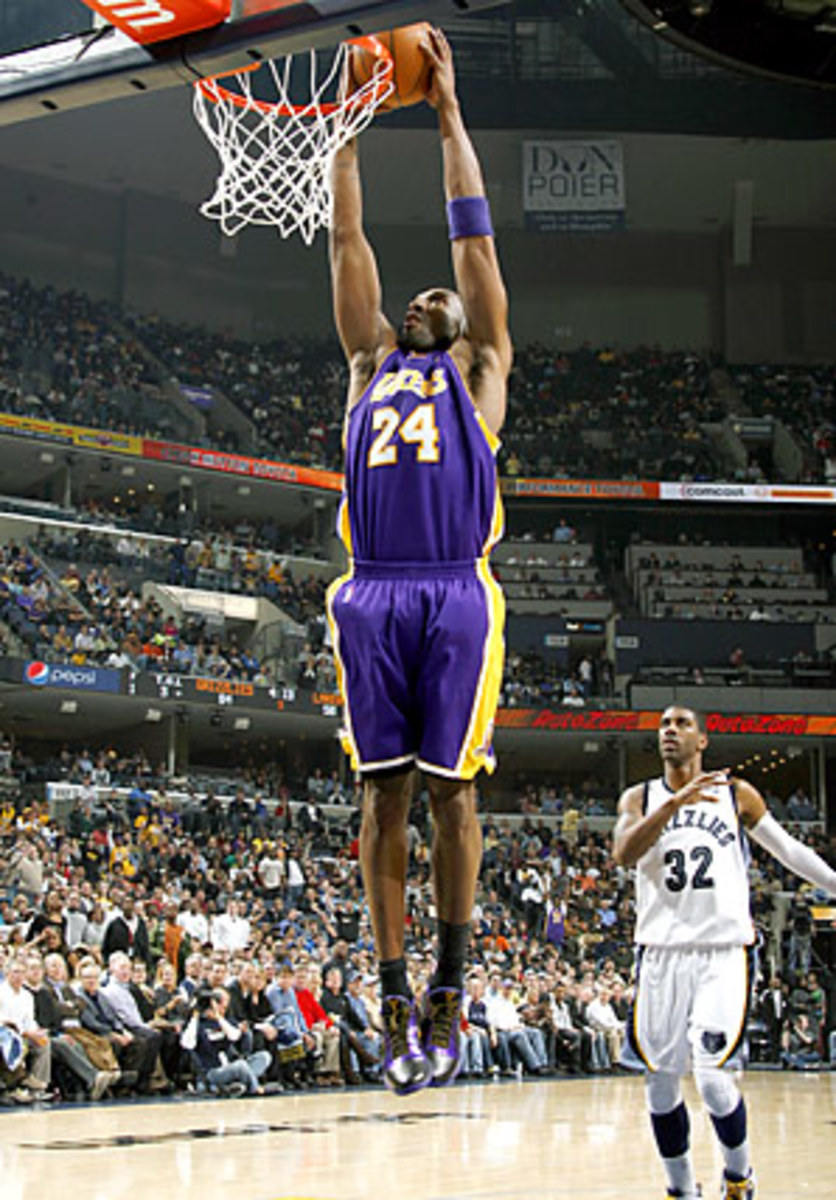Kobe may already be the greatest Laker ever -- and he's not done yet
West, Kareem Abdul-Jabbar, Elgin Baylor, Magic Johnson, James Worthy and Shaquille O'Neal all find themselves looking up to Bryant, who won't turn 32 until summer. This achievement underlines Bryant's place alongside West and Magic as the three most important Lakers, in terms of their success over an extended period of time.
West was the Lakers' first-ever draft pick following their relocation from Minneapolis to Los Angeles in 1960, and over the next 14 seasons he established their standards for charisma, showmanship and team success. As GM he would extend through two subsequent generations: By winning five championships in the 1980s via Johnson, Abdul-Jabbar and Worthy, and then setting up the Lakers to win four more (at least) through Shaq and Kobe, who has been their mainstay of the new millennium.
West was skeptical when Bryant entered the 1996 draft as a 17-year-old from Lower Merion High School in suburban Philadelphia. At that time all of the successful NBA players who skipped college had been big men who usually were forced to turn pro for reasons of money or academic ineligibility; Bryant was a 6-5 wing with an SAT score of 1080 and a father, Joe Bryant, who had recently finished a 16-year career as a player in the NBA and Europe. So Kobe could have gone to any school of his choosing, and he had money.
Bryant was the best draft prospect who had ever worked out for West. When West asked him to jump, Bryant touched the top of the backboard square. Michael Cooper, the former Lakers stopper who made his name guarding Larry Bird, was unable to stop Kobe. For the final course, Bryant devoured a one-on-one matchup against Dontae' Jones, the star of Mississippi State's recent Final Four team and an eventual first-round pick himself by the Knicks.
"I've seen enough,'' said West to an aide. "Let's go.'' He arranged to send starting center Vlade Divac to the Charlotte Hornets for Bryant, whom the Hornets chose with the 13th pick. Freed of Divac's salary, the Lakers then signed Shaq to a seven-year, $120 million contract. You know the rest of it.
"It's a tremendous honor,'' said Bryant Sunday in anticipation of breaking West's franchise record. "There's a lot of work that's been put into it, a lot of great advice from a lot of different mentors, and him being the primary one. When I first came into the league I remember him giving me great advice from day one. I can't take credit for it, because I really gained a great deal of advice from the great players who came before me.''
In many ways he is the second-coming of the GM who discovered him. West was too small to dominate at the championship level of the 1960s, when giants ruled his world, but changes in the game and Bryant's superior athleticism have altered that dynamic in Kobe's favor. Like West, nicknamed Mr. Clutch, Bryant is recognized as the most lethal player in the final seconds of a win-or-lose game, as he proved most recently with his writhing turnaround jumper with 7.2 seconds remaining Sunday to beat Boston (incidentally avenging West, who lost a half-dozen NBA Finals to Bill Russell's Celtics).
Much as West bridged the eras of Baylor and Wilt Chamberlain, so too has Bryant succeeded in guiding the Lakers back to the top of the league seven years after he and Shaq won the last of their three titles together.
In the larger picture, West's heir has also replaced him as the No. 14 scorer in league history. By season's end Bryant should have swept past Reggie Miller (25,279 points) and Alex English (25,613) to rank No. 12 overall, and a successful defense of the Lakers' championship would leave him with five rings to match the finest achievements of Magic. So we probably aren't finished comparing Bryant to the best who came before him.





